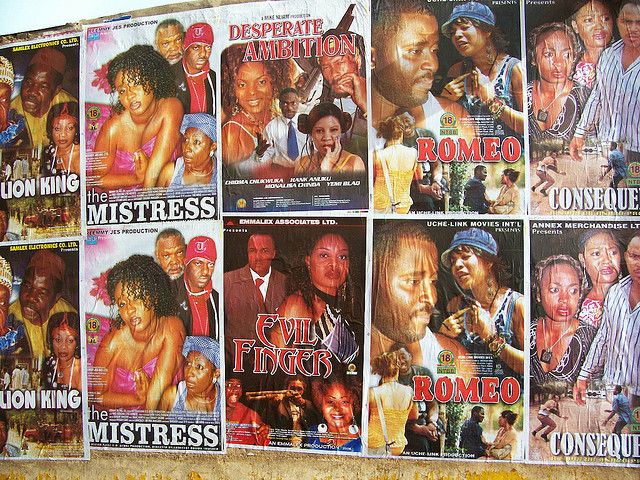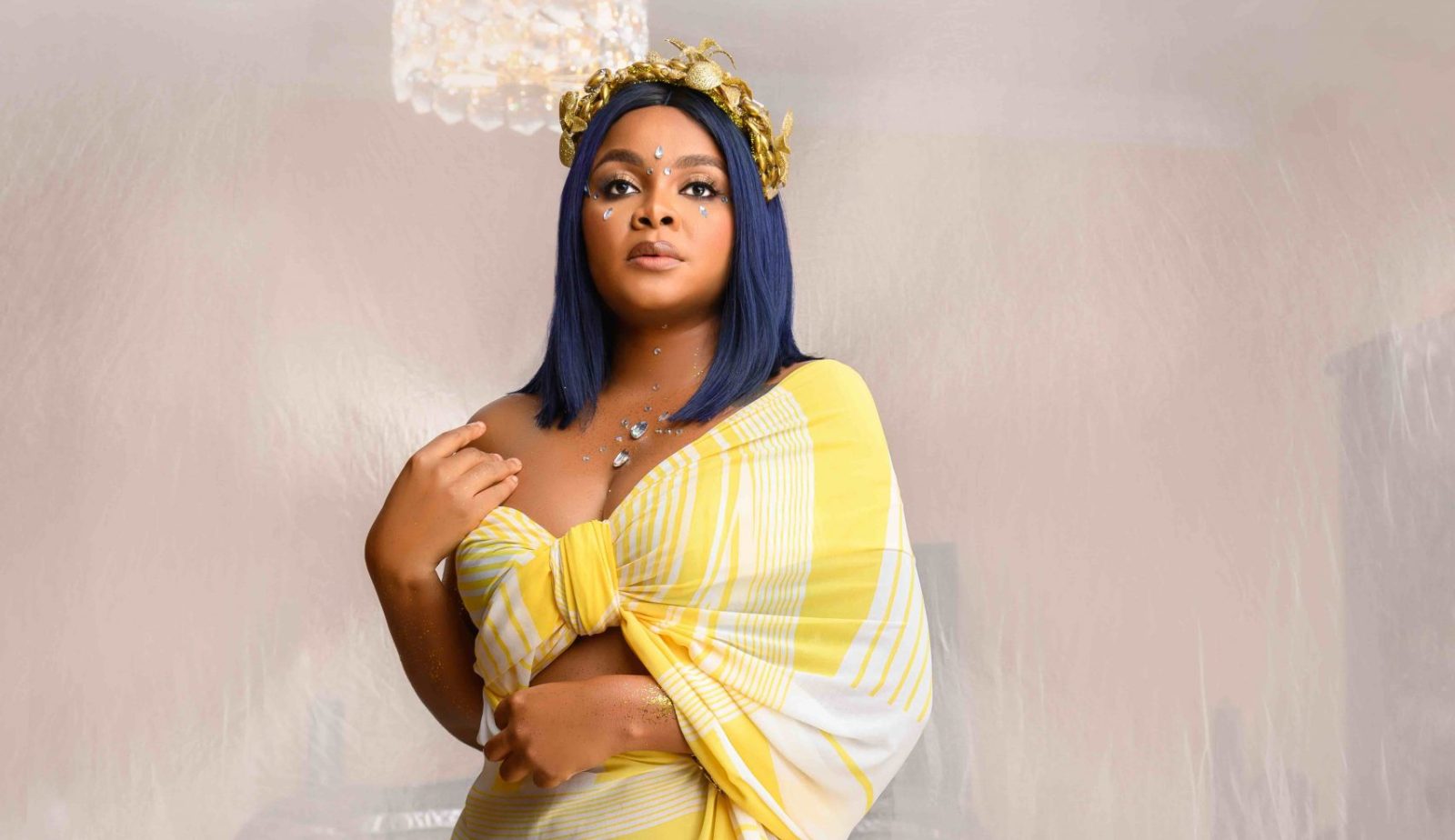For decades, Nollywood’s marketers wielded immense influence, serving not only as distributors but also as gatekeepers of success. They possessed the power to catapult an actor to stardom or condemn them to obscurity, controlling who landed coveted roles in blockbuster films and who languished in the background..
With their grip on the industry’s financial and distribution channels, they controlled not just what stories were told but also who got to tell them. Many of today’s biggest stars owe their rise to the backing of these marketers, who bankrolled projects and ensured wide releases.
Investigation conducted by Per Second News and words from the industry’s stakeholders revealed that marketers influence stretched far beyond distribution. To land a major role in those days, according to some industry stakeholders, was not solely about acting prowess but also about who one knew.
Marketers reportedly called the shots; dictating casting choices and deciding which actors remained relevant.
As a result, filmmakers and actors alike often had to go cap in hand, seeking their endorsement to secure roles or funding. Some producers were allegedly forced to compromise on their creative vision to align with the preferences of these powerful distributors.
But this influence came at a cost. Just as they elevated some, they reportedly sidelined others. Persecondnews gathered that a role in a major film wasn’t always about talent but about the right connections, leaving many skilled actors struggling for opportunities despite their abilities.
Now, that era seems to be fading as streaming platforms have broken the gatekeepers’ monopoly, giving actors and filmmakers a direct line to audiences without needing a marketer’s stamp of approval. The industry’s balance of power is shifting, and with it, Nollywood’s future is being rewritten.
The golden era of movie marketers
In the 1990s and early 2000s, Nollywood operated what entertainment stakeholders described as a heavily centralized distribution model controlled by Alaba-based marketers, mirroring the structure seen in other low-budget, high-output film industries like Bollywood’s regional cinema.
A famous movie producer who didn’t want her name mentioned said: “These marketers were not just financiers; they were the gatekeepers who determined which films reached audiences and how they were packaged for maximum commercial success.
“They bankrolled productions, decided on release strategies, and ensured that films were mass-produced on VHS and later VCDs, flooding markets across Nigeria and beyond.”
Without their backing, many filmmakers struggled to break into the industry. The marketers dictated everything, from movie titles to cast choices, prioritizing commercial viability over artistic innovation. This era birthed films that became cultural landmarks—titles like Living in Bondage, Nneka the Pretty Serpent, and Karishika dominated the screens, driven by themes of the supernatural, revenge, and rags-to-riches tales that resonated with audiences.
It was a lucrative system for those at the top. With production costs relatively low and demand soaring, marketers reportedly made millions, churning out movies in quick succession to keep the market constantly supplied. The power they wielded shaped Nollywood’s trajectory, cementing it as a profitable yet often formulaic industry, where quantity frequently trumped quality in the race to maximise sales.
How Nollywood Marketers lost their grip
As technology evolved, cracks began to appear in the once-unshakable empire of Nollywood’s marketers. The rise of digital media and rampant piracy chipped away at their dominance, disrupting a business model that had long thrived on physical sales.
At the height of their reign, a film’s success was largely dictated by how many copies its DVD could sell in bustling markets like Alaba, Idumota, and Onitsha. But as pirated versions flooded the streets mere days after a film’s release, marketers could no longer guarantee profits, and their grip on distribution began to weaken.
This shift coincided with the internet’s growing accessibility, ushering in new possibilities for filmmakers eager to break free from the marketer-controlled system. Instead of relying on middlemen to push their work, directors and producers started exploring digital alternatives. YouTube, Netflix, and other streaming platforms emerged as game-changers, offering filmmakers a direct line to audiences both at home and abroad.
No longer constrained by the tastes and commercial instincts of traditional distributors, storytellers could experiment with fresh narratives, high-quality productions, and more diverse genres. The old order was crumbled, and a new Nollywood—one driven by creative autonomy rather than marketer mandates—came to light.
The YouTube Revolution
Among the many digital platforms that have transformed Nollywood, YouTube stands out as the biggest disruptor. Content creators now use the platform to release their films and series, often monetizing through ad revenue and sponsorships.
Unlike the days when filmmakers had to grovel for marketers’ backing, YouTube allows them to connect directly with audiences.
The success of channels like Uduak Isong’s “Yorubahood,” “Apata TV,” and “Nollywood TV” has proven that independent creators can thrive without traditional marketers. This direct-to-audience model has democratized the industry, allowing storytellers to experiment without interference.
Streaming Services and the future of Nollywood
Beyond YouTube, subscription-based platforms like Netflix, Amazon Prime Video, and IrokoTV have further reduced the power of traditional marketers. These platforms offer filmmakers better revenue structures, greater creative control, and a global audience.
Nollywood producers such as Kunle Afolayan, Mo Abudu, and Kemi Adetiba have embraced these streaming services, securing lucrative deals that marketers could never have provided.
Reflecting on this shift, Afolayan, whose films like The CEO and Aníkúlápó have thrived on streaming platforms, said, “With platforms like Netflix, filmmakers can now tell the stories they want, with the quality they envision, and still reach a broad audience. We are no longer bound by the limitations of the old system.”
Similarly, Mo Abudu, the force behind Oloture and The Wedding Party, highlighted the significance of these digital platforms, stating, “Streaming services have completely changed the game. They offer us the ability to create world-class content that can be seen across the globe, something that traditional distribution could never fully achieve.”
Adekaz, Isolak, Corporate Pictures, And Others Speak
While many assume that streaming platforms have completely sidelined traditional marketers, some industry insiders argue otherwise. Kazim Adeoti, founder of Adekaz Film and owner of Ibaka TV, insists that marketers are not losing influence but adapting to the digital transformation.
“Streaming platforms are not taking the shine away or reducing the influence of marketers. In fact, most of the YouTube platforms flying around are owned by major marketers. You may not know, but I own Ibaka TV, an online TV channel,” Adeoti said.
He emphasized that the shift from DVDs to streaming services was inevitable, and marketers who anticipated the change have successfully transitioned. “Change is constant. We are moving from the analogue to the digital world—from movies on CDs to YouTube, Netflix, and other streaming platforms. I was the first to go digital. I saw it coming, and I moved with the times.”
Adeoti, who co-produced the Netflix-hit Ada Omo Daddy with his wife, actress Mercy Aigbe, believes that the industry’s evolution has created more opportunities rather than diminishing marketers’ roles.
“We churn out content every two weeks, and we are also investing in the big screen. Streaming platforms have made things easier because the stress is less, and the rewards are more. Marketers are now more influential because the audience is global.”
He further described quality films as long-term assets, akin to real estate investments. “Quality movies are now like landed properties. They yield returns over time and come with endless rewards. Different platforms request them, and filmmakers continue to earn royalties.”
We Can’t Call the Shots the way we did back then again…
However, not all marketers share Adeoti’s optimism. Isolak Ventures, another prominent Nollywood marketer, offered a contrasting perspective. He acknowledged that technology is here to stay but admitted that marketers can no longer dictate the industry’s direction as they once did.
“Movie marketers can’t call the shots the way they did back then. The fact that YouTube and other streaming platforms are taking over tells one that it is time to go with the times or be left out,” he remarked.
While he recognized the importance of adapting, he also lamented the financial struggles that many marketers now face. “Things are no longer as rosy as they used to be, but we are adjusting. Streaming is about giving people content steadily, or you lose out. We, the marketers, are the ones putting our content on most of these platforms.”
Balogun, Kosoko, Quadri, Akindele say Streaming Platforms have given Actors Direct Access to Fans
Veteran actor Saidi Balogun sees this transformation as an opportunity rather than a setback. “Filmmakers now have the chance to own their work and reach a wider audience. The days of being at the mercy of marketers are over. Streaming has given actors and producers direct access to their fans.”
Jide Kosoko echoes a similar sentiment, stating, “Back then, marketers were our gatekeepers. They decided whose films got produced and distributed. Now, the internet has changed everything. The power is shifting to those who create, and that is a good thing.”
Yinka Quadri, a Nollywood veteran, acknowledges the challenges marketers face but believes adaptation is the way forward. “The business model has changed. Those who are smart enough to evolve will continue to thrive. Marketers who embrace technology will remain relevant.”
Funke Akindele, a major player in the streaming space, shared her experience: “Platforms like Netflix and YouTube have allowed us to tell our stories without limitations. Omo Ghetto: The Saga was a cinema success, but streaming made it even bigger. It’s about understanding the new market.”
Actress Wunmi Toriola also weighed in, emphasizing the importance of consistency. “If you’re not putting out content frequently, you’ll fade out. Streaming platforms reward consistency and engagement. This is a wake-up call for everyone in the industry.”
Challenges of the New Distribution Model
While the move to digital platforms has largely been positive, it comes with its own challenges. Monetizing content on YouTube can be unpredictable, with revenue depending on ad rates and audience engagement.
Streaming services, on the other hand, are highly competitive, making it difficult for lesser-known filmmakers to break through. Additionally, data costs in Nigeria remain a barrier, limiting the reach of online content compared to the once-popular DVD market.
A New Dawn for Nollywood
Despite the challenges, the decline of traditional marketers marks an important turning point for Nollywood. Filmmakers now have the power to shape their narratives, control their earnings, and engage directly with their audiences.
The industry is entering a new phase of global recognition, with Nigerian films making waves at international film festivals and on global streaming platforms.
























Leave a comment